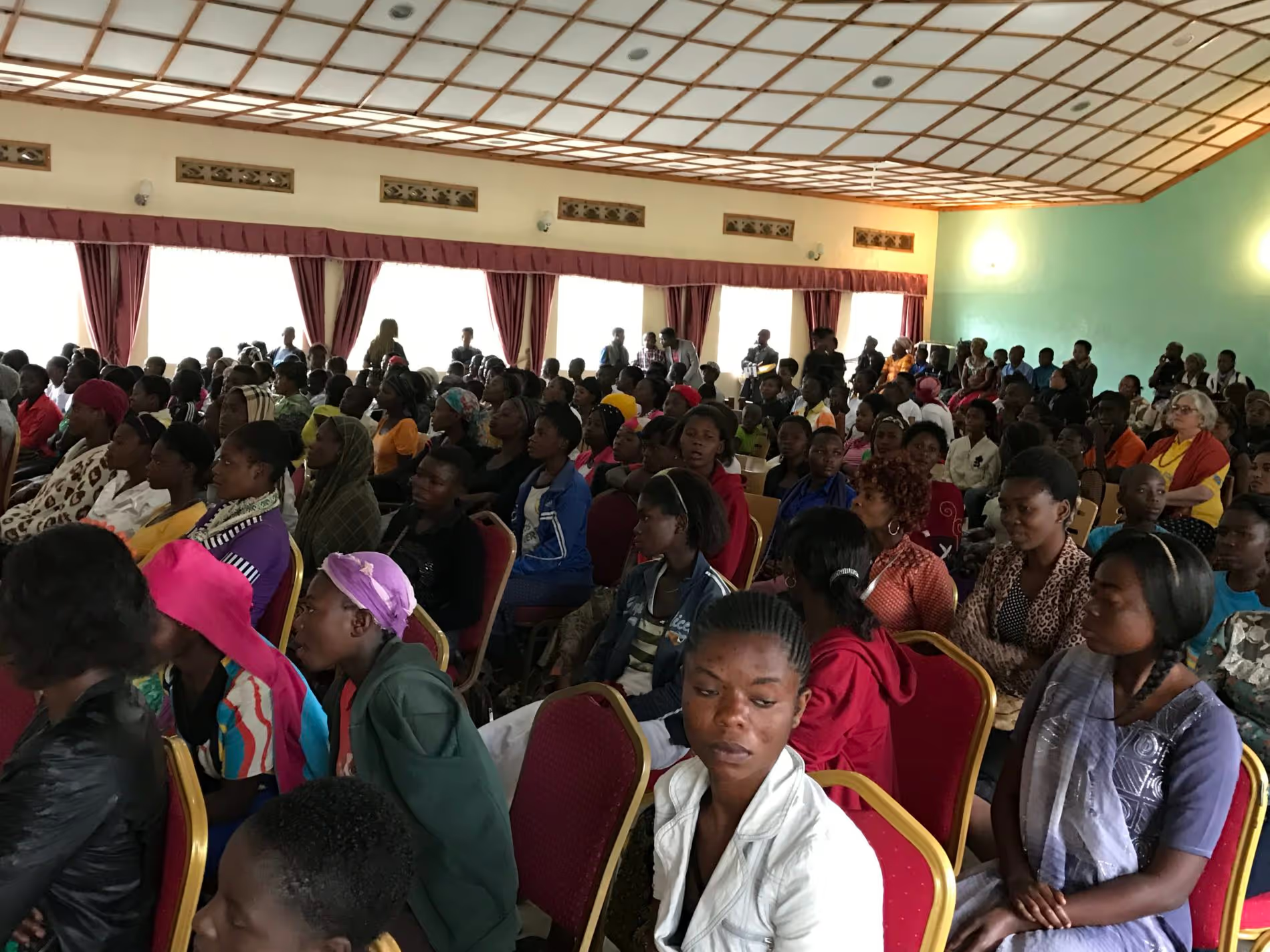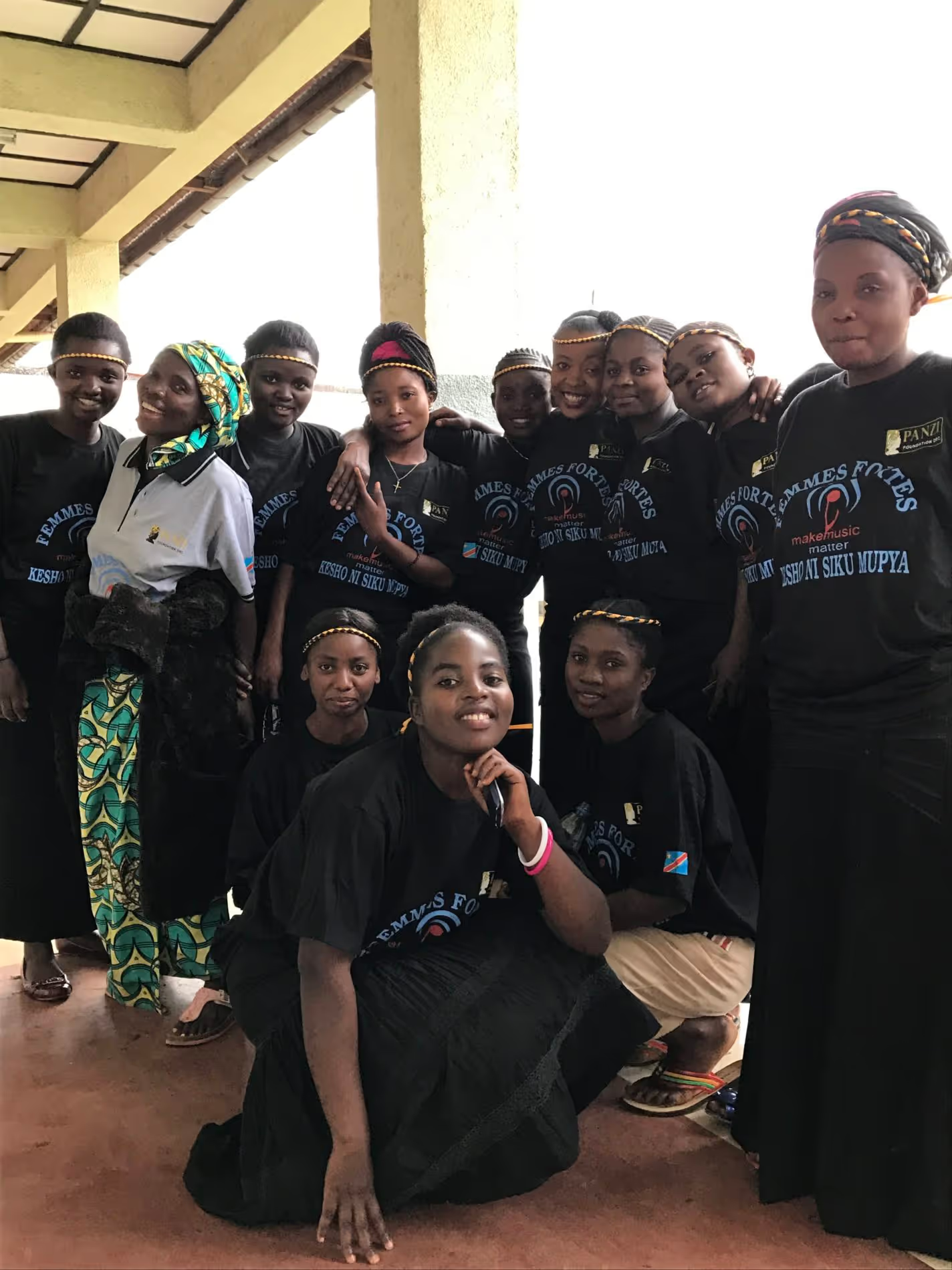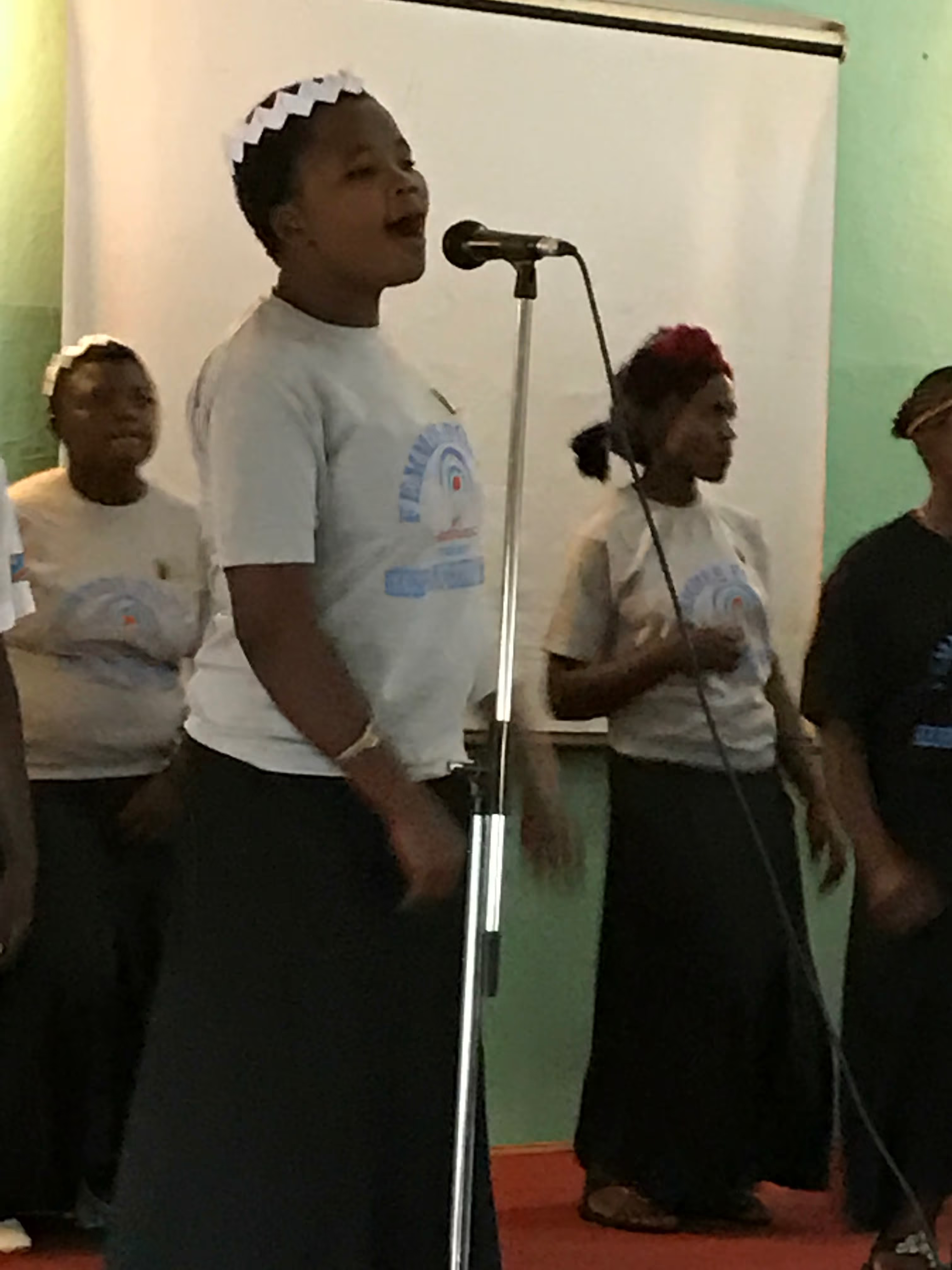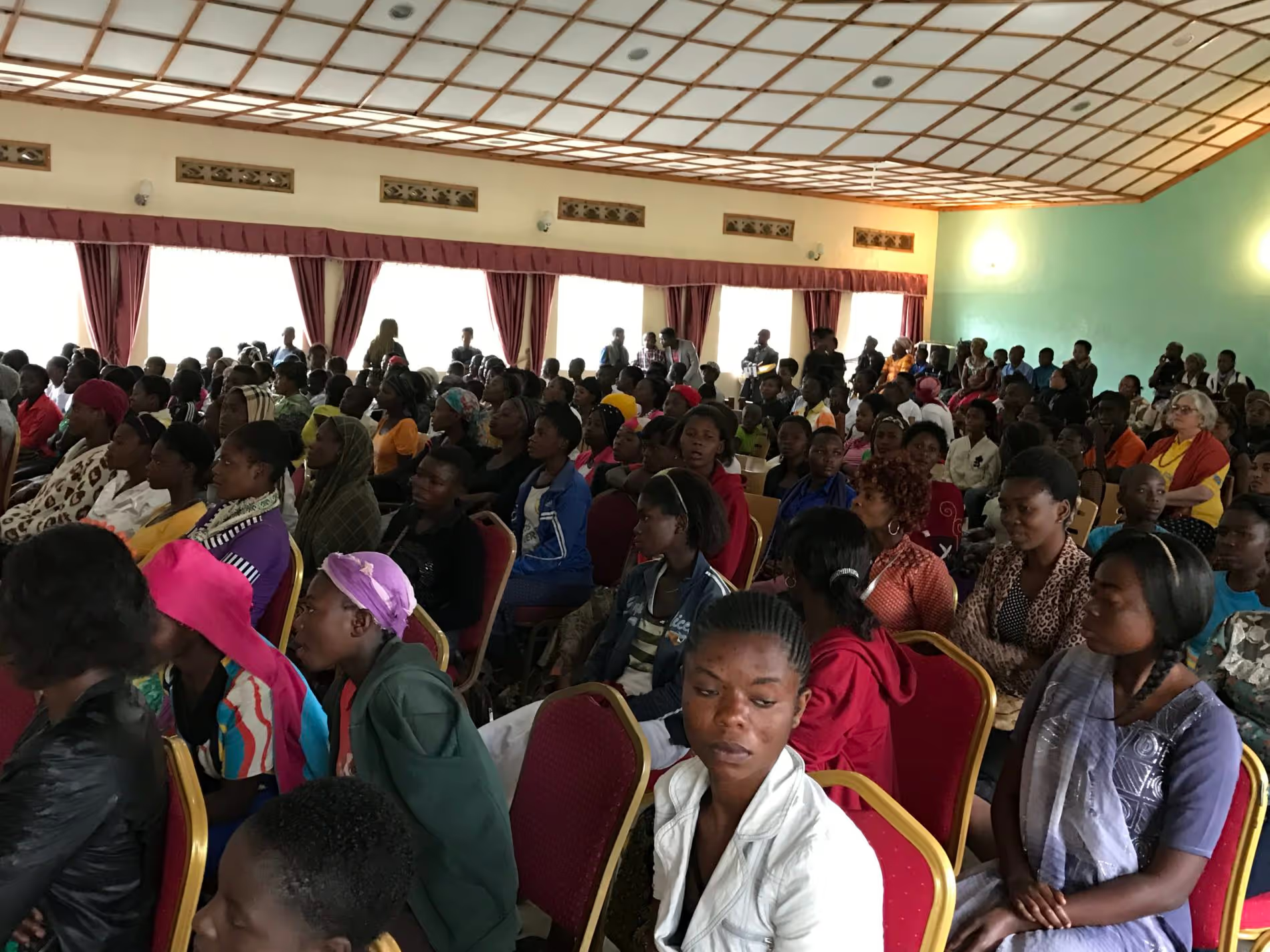Journey to Scale Begins!
20
April
2017
Type
Grantee insights
Area of funding
Humanitarian Innovation
Focus areas
No items found.
Year

I recently returned from my latest mission to the Democratic Republic of the Congo (DRC), and am more excited than ever that we are launching the next phase of our Healing in Harmony music therapy program as part of our Journey to Scale, and it is exciting to see these next steps beginning to take shape.
Our program improves upon traditional music therapy techniques, respecting each participant’s agency over their own experiences and creative processes. Centered around a locally built recording studio, Healing in Harmony is integrated into a wider health institution. Women, children and vulnerable community members gather in this recording studio and, with a therapeutic team that includes a psychologist working in tandem with a professional music producer, patients make their transformation into artists.
To date, our innovation has been widely successful in providing treatment/rehabilitation to over 1200 survivors of sexual violence and other traumatized, vulnerable communities within the urban setting of Panzi Hospital’s aftercare facility Maison Dorcas in Bukavu. The message delivered through the music has aided in the reintegration process by raising awareness, and reducing stigma and aids in prevention by alchemizing the healing pathway where survivors become advocates.
The first phase of our Journey to Scale constitutes scaling up in rural Mulamba, a Panzi One Stop center. We will soon be fully operational, and the Healing in Harmony music therapy program will start reaching more survivors and vulnerable community members.
Before the program begins there, we are constructing our own building within the compound of this field hospital. I am very excited to report that construction is underway and on track for my return on May 1st.
Our scaling up phase(s) will stress test our methodology further as we begin to replicate our program in other Congolese communities beyond the main campus at Panzi framework through the development of a franchise and affiliate system. This system will continue to ensure local ownership and culturally appropriate and relevant conversation and music production, which has been paramount to the program’s success.
There were two moments during this last mission that reassured me of the potential of our scaling up phase(s). The first was when I conducted a round of radio station visits, collecting feedback from the station managers from our nearly 5 million listeners in the region. One particular anecdote from a caller immediately struck a chord in relation to the long-term results we are trying to achieve. A women from the countryside had recently called in to say that for most of her adult life she has suffered from crippling PTSD due to witnessing the violent death of her family members and being a survivor of sexual violence herself. She went on to state that the act of viscerally listening to the songs from our program and understanding the stories from our artists had cured her from the crippling flashbacks and headaches that resulted from her own trauma.The second moment occurred during the last day of the trip where we put on our very first “greatest hits” community concert. Artists, since the inception of our program at Panzi, performed in front an overflowing room of attendees. It was an astounding sight to see every single one of our past participants/artists return in order to come together in performance, solidarity and joyful defiance of former circumstances. I watched as past, present and future artists became a singular expression of hope and change and I began to realize the network of advocates that could be formed by our scaling out phase. Since every single past participant/artist still showed up in an engaged fashion to perform and educate their adoptive community, then perhaps we are giving them agency in their own healing beyond the mandated program cycle. While I am always pleased of the positive results we have on the three major mental health indicators of PTSD, anxiety and depression during the course of our program, we know giving them the tools to continually heal themselves for the foreseeable future, we can help create a true tipping point for traumatized communities writ-large.
It is this potential of our scaling out phase that has further emboldened me alongside my own organization Make Music Matter and partners Panzi Foundation USA and Panzi Foundation DRC, to explore these emerging opportunities in our Journey to Scale.
No items found.
Stay updated
Sign up for our newsletter to receive regular updates on resources, news, and insights like this. Don’t miss out on important information that can help you stay informed and engaged.
Related articles
all latest news

News
Elrha at HNPW 2026: Exploring what’s next for the humanitarian system

News
2025 in review: challenges, achievements and what comes next
.png)
Elrha insights
The 16 Days of Activism: Innovating GBV response amid global challenges
Explore Elrha
Learn more about our mission, the organisations we support, and the resources we provide to drive research and innovation in humanitarian response.


